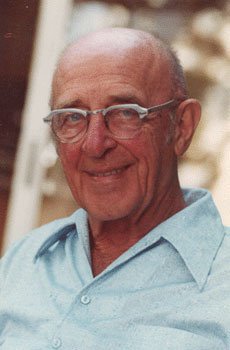About Carl Rogers

Carl R. Rogers, Ph.D. (1902-1987) was one of the founders of the humanistic psychology movement and the most influential psychologist in American history. He wrote 16 books and more than two hundred articles and received many honors, including the Distinguished Scientific Contribution Award of the American Psychological Association.
Power Relations and the Person-Centered Approach
by Curtis Graf
The truly life-enhancing outgrowth of the person-centered approach derives from Rogers's unwavering commitment to egalitarian rather than authoritarian power relations. Rogers discovered in the early 1930s as a psychologist that diagnosing and directing clients toward treatment outcomes minimized the probability that clients would initiate constructive change based on their own integrity and personal power (Kirschenbaum, 1979). "To me, it appears that only as the therapist is completely willing that any outcome, any direction, may be chosen — only then does he realize the vital strength of the capacity and potentiality of the individual for constructive action" (Rogers, 1951, p. 48). For the next 50-plus years, Rogers (1980) remained resolute that the only way to facilitate psychological maturity - individual integrity, self-responsibility, and personal power - was by trusting in the competency of people to be self-determining and by providing a relationship infused with congruence, empathy, and acceptance. This was a radical departure from the authoritarian assumption that professional experts could and should help by solving others' problems for them, with the expectation that clients would then somehow be better able to solve their own problems (Rogers, 1977).
The survival of Rogers's egalitarian approach in the 21st century is threatened by the degree to which people continue to be psychologically addicted to authoritarian power, especially in the United States. In the year 2000, only about four percent of American psychologists aligned themselves with Rogers's approach (American Psychological Association, 2000). Furthermore, Rogers's contribution is typically reduced to reflective listening, which supposedly gets completed before the real therapy begins. For example, a recent counseling text stated that "Carl Rogers taught us the importance of acknowledging and validating the internal experience of clients. However, if we only reflect experiences . . . it is clear that most clients will need more intervention on the part of the therapist" (Bertolino & O'Hanlon, 2002). In authoritarian systems, it is difficult to discern whose needs are actually being met: the needs of most clients, who presumably expect more directive interventions, or the habitual needs of the majority of therapists and other professionals, who seek the safety and status they derive from being the experts.
However, we now know that it is not the clients who need the directive interventions. More than 40 years of sophisticated positive-outcome research, which was based on all kinds of psychotherapies, has confirmed that constructive change overwhelmingly results from the client's own motivation and the presence of a facilitative person who can offer understanding, acceptance, respect, and genuineness (Lambert, 1992; Miller, Duncan, & Hubble, 1997). It is not the therapist's directive techniques, the new wonder drug, or the DSM diagnosis and treatment plan that yield positive outcomes. Instead, it is the client's own inherent capacities for self-healing, combined with the quality of the therapeutic relationship, that Rogers first described more that 60 years ago as yielding constructive action.
When Carl Rogers was asked, "What is a good leader?" Carl would often pull a crumpled piece of paper out of his wallet and read aloud what Lao Tzu, the ancient Chinese philosopher, had written: "When his task is accomplished and things have been completed, all the people say, 'We ourselves have achieved it!'" (Wu, 1990, p.25).